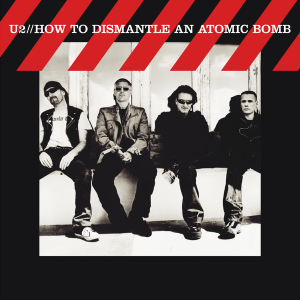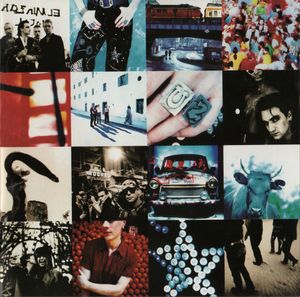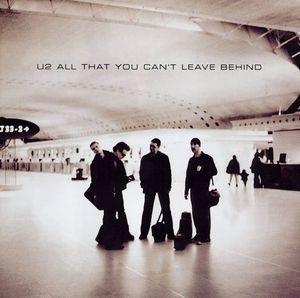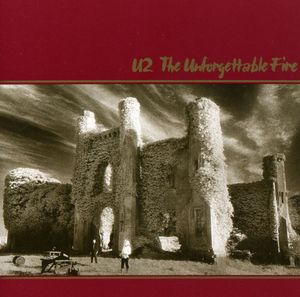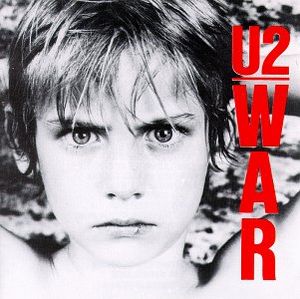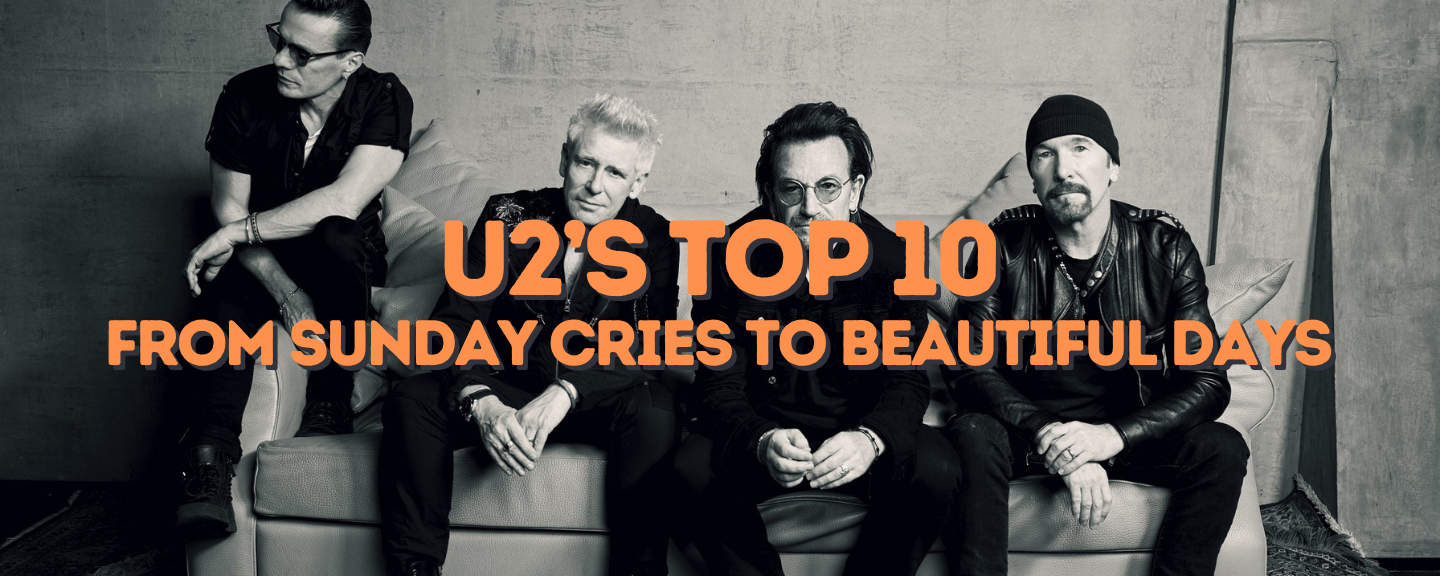
U2’s Top 10: From Sunday Cries to Beautiful Days
Listen on Spotify
U2: From Dublin Streets to Global Icons
U2, the Irish rock band hailing from Dublin, burst onto the music scene in 1976. This iconic quartet, comprised of Bono (lead vocals and rhythm guitar), The Edge (lead guitar, keyboards, and backing vocals), Adam Clayton (bass guitar), and Larry Mullen Jr. (drums and percussion), have transcended their post-punk roots to become a global force in music.
Their sound, characterized by Bono's soaring vocals and The Edge's signature shimmering, effects-laden guitar, evolves across their expansive career, yet consistently retains an anthemic quality. Bono's lyrics, often imbued with spiritual imagery, explore both personal and sociopolitical themes, captivating audiences worldwide.
U2's journey began humbly, with the members as teenagers attending Mount Temple Comprehensive School, their musical skills still developing. Despite their early limitations, they quickly gained traction, signing with Island Records just four years later and releasing their debut album, "Boy" (1980).
Their ascent continued with "War" (1983), their first UK number-one album, which further cemented their reputation as a politically and socially conscious group. Singles like "Sunday Bloody Sunday" and "Pride (In the Name of Love)" became anthems of a generation, reflecting the band's commitment to raising awareness and sparking dialogue.
Collaborating with producers Brian Eno and Daniel Lanois on their fourth album, "The Unforgettable Fire" (1984), U2 embarked on a new sonic direction. This partnership introduced a more abstract, ambient sound, adding another dimension to their already diverse musical palette.
U2's impact extends far beyond the studio, as their renowned live performances have become legendary. Their elaborate, immersive tours have captivated fans worldwide, showcasing their dynamic energy and powerful message. From their humble beginnings in Dublin to their status as global icons, U2's journey is a testament to their unwavering passion, musical evolution, and enduring impact on the world of music.
Echoing delay guitars, impassioned vocals, and a restless spirit of activism—U2 have spent more than four decades turning personal quests and global concerns into soaring anthems. In this countdown, we revisit ten essential tracks that chart the band’s evolution from post-punk idealists to stadium-rock visionaries. Whether it’s the righteous fury of “Sunday Bloody Sunday,” the intimate longing of “One,” or the sun-splashed renewal of “Beautiful Day,” these songs capture U2’s unique ability to marry sonic innovation with emotional and social resonance.
Selection Criteria
These songs were selected based on cultural impact, musical innovation, streaming popularity, and their significance in the band's discography.
The Top 3
Vertigo
How to Dismantle an Atomic Bomb • 2004Opening with Bono’s counting in Spanish and English—“Uno, dos, tres, catorce!”—“Vertigo” crashes in on a snarling riff that harks back to early punk influences. Mullen’s pounding toms and Clayton’s lockstep bass drive a compact, two-and-a-half-minute blast of adrenaline. The song’s dizzying imagery reflects the sensory overload of modern life, while its raw energy rekindled U2’s rock-’n’-roll aggression. Winning three Grammys and anchoring a massive iPod campaign, “Vertigo” demonstrated the band’s knack for staying culturally relevant across decades.
Mysterious Ways
Achtung Baby • 1991A slinky bass groove, wah-drenched guitar stabs, and funk-infused drum loops marked a radical sonic makeover on Achtung Baby. Producer Flood’s experimental textures and Edge’s newfound affection for dance rhythms transform the track into a gospel-funk hybrid. The lyrics celebrate feminine transcendence and spiritual surprise—“She moves in mysterious ways.” Its shape-shifting groove invited listeners onto the dance floor while signaling U2’s post-Berlin reinvention, proving the band could embrace club culture without losing emotional heft.
I Still Haven’t Found What I’m Looking For
The Joshua Tree • 1987A gospel-infused rhythm section and The Edge’s chiming delay lines craft a desert-spiritual ambience. Borrowing from American roots music, the track features harmonic backing vocals reminiscent of a revival choir, underscoring its questing spirit. The lyrics blend biblical imagery with restless doubt, encapsulating U2’s continual search for faith and meaning. Its blend of secular rock and spiritual yearning struck a cross-generational chord, culminating in a celebrated Harlem gospel-choir performance for Rattle and Hum that highlighted the song’s church-without-walls resonance.
Honorable Mentions
Beautiful Day
After a creative reset in the late ’90s, U2 roared back with this buoyant lead single from All That You Can’t Leave Behind. The Edge layers distorted stabs over bright piano chords and soaring synth strings, while Clayton’s driving bass keeps the track aloft. Mullen’s crisp backbeat anchors the song’s sudden key shifts, creating an uplifting rush. Lyrically, Bono turns a bleak scenario—losing everything—into a celebration of life’s gifts, making “Beautiful Day” an antidote to millennial angst. Its universal optimism earned Grammys and became a staple at sporting events and global ceremonies, reaffirming U2’s status as masters of anthemic uplift.
Pride (In the Name of Love)
Powered by The Edge’s chiming, octave-jumping riff and a propulsive snare-on-every-beat groove, “Pride” distilled stadium rock to righteous essentials. The song’s bright major-key surge contrasts poignantly with its subject: Martin Luther King Jr.’s sacrifice and the broader civil-rights struggle. Bono’s economical lines—“One man come in the name of love”—capture both individual heroism and collective yearning. Frequently performed at human-rights events, “Pride” exemplifies how U2 fuse muscular hooks with moral messaging, ensuring that conscience and chorus hit with equal force.
Where the Streets Have No Name
A cascading delay-soaked intro—recorded in painstaking slices to capture its swirling momentum—launches one of U2’s grandest statements. Clayton’s octave-climbing bass and Mullen’s galloping toms create forward motion that mirrors the song’s lyrical quest for transcendence. Live, the opening shimmer still sparks stadium-wide euphoria. Bono imagines a place beyond social and religious divides, inspired by drives through Ethiopia and Belfast alike. Its vision of unity helped The Joshua Tree crystallize the band’s spiritual-meets-political aesthetic, while the roof-top video shoot in downtown L.A. cemented their populist mystique.
New Year’s Day
Driven by Clayton’s hooky, minor-key bass riff and The Edge’s ice-pick piano chords, “New Year’s Day” marries post-punk austerity to widescreen ambition. Mullen’s militaristic drumming gives the track a sense of forward march, while Edge’s guitar solo slices through like winter air. Inspired by Poland’s Solidarity movement, Bono’s lyrics juxtapose romantic loyalty with political hope—“I will be with you again.” The song’s snow-covered video became an early MTV staple, expanding U2’s global footprint and proving that political commentary could coexist with pop accessibility.
Sunday Bloody Sunday
Opening with Mullen’s martial snare pattern and The Edge’s slicing, violin-like guitar riff, this track announced U2’s arrival as socially conscious firebrands on War. The stark arrangement mirrors the gravity of its subject: the 1972 tragedy in Derry, Northern Ireland. Live, the band often performs it under a single white spotlight, amplifying its urgency. Bono’s impassioned vocals decry sectarian violence while pleading for peaceful resolution—“How long must we sing this song?” Despite fears of misconstrued partisanship, the track became a worldwide rallying cry against injustice, illustrating U2’s willingness to confront political turmoil head-on without sacrificing rock ferocity.
One
Written amid intra-band tension during the fraught Achtung Baby sessions, “One” emerged as an unexpected olive branch. The Edge’s plaintive arpeggios flow over a subdued rhythm section, while Brian Eno’s subtle synth pads lend a gospel-like warmth. The restrained arrangement gives Bono ample space to deliver one of his most nuanced vocals. Lyrically, “One” grapples with fractured relationships—personal, romantic, and political—while insisting on shared humanity: “We get to carry each other.” Adopted by charities and performed at countless benefit concerts, the song transcended its origins to become an anthem for solidarity and reconciliation, underscoring U2’s knack for turning private struggle into universal appeal.
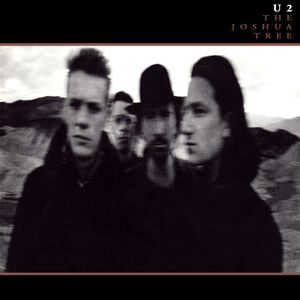
With or Without You
Built on Adam Clayton’s hypnotic bass ostinato and The Edge’s ethereal Infinite Guitar swells, “With or Without You” redefined what a rock ballad could sound like in the late-’80s. Larry Mullen Jr.’s heartbeat kick drum and a gradually cresting arrangement create a sense of tidal tension that finally breaks in the song’s climactic wails. Producer Daniel Lanois’s atmospheric layering lets every note breathe, turning minimal parts into cinematic grandeur. Bono’s lyrics explore the push-pull of obsessive love—aching dependency entwined with a yearning for liberation. The song captured global airwaves, propelled The Joshua Tree to multi-platinum status, and became a staple in U2’s live sets, where its extended codas invite communal catharsis. Decades on, it remains a benchmark for emotional rock songcraft.
Final Thoughts
This ranking represents the pinnacle of U2’s Top 10: From Sunday Cries to Beautiful Days artistic achievement. Each song has earned its place through a combination of cultural impact, musical innovation, and enduring popularity.
Cultural Impact
Songs that shaped music history and influenced countless artists
Fan Favorites
Tracks with millions of streams and lasting popularity across generations
Watch Related Video
Last Updated: 4/30/2025

